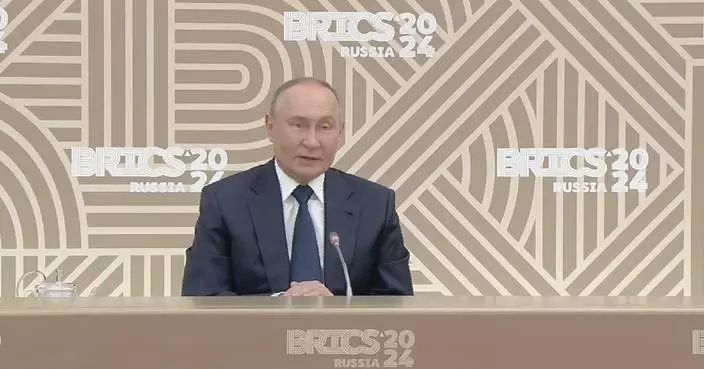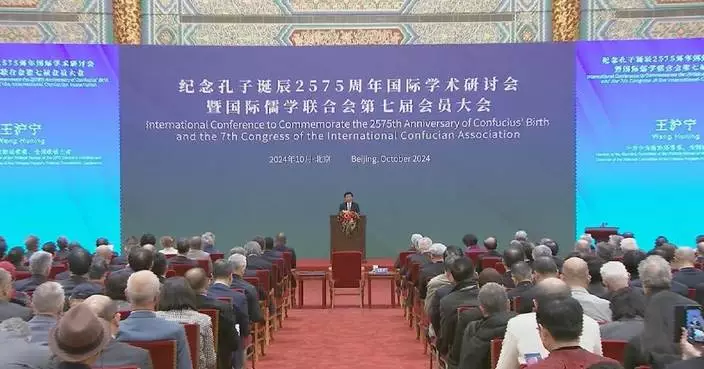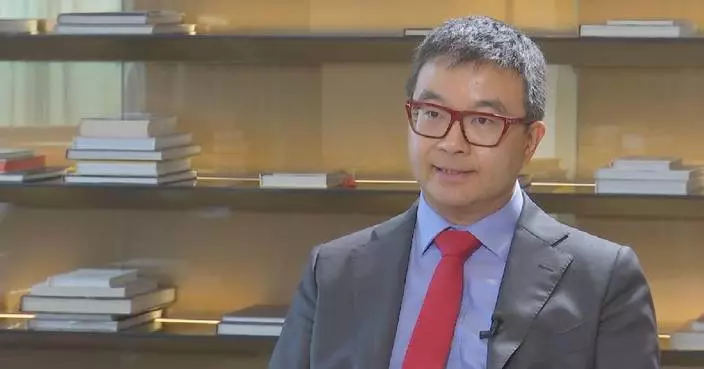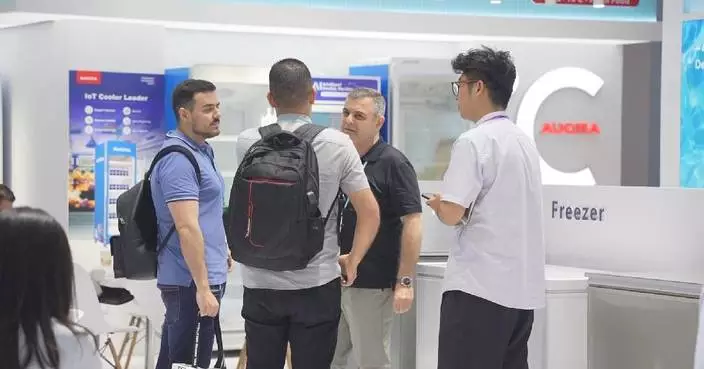President of the Brazilian Space Agency Marco Antonio Chamon called for enhanced space collaboration among BRICS countries.
Chamon expressed his profound admiration for the blooming development of the space industry, especially in the realm of private enterprises, during an interview with China Global Television Network (CGTN) at the 75th International Astronautical Congress (IAC) held in Milan, Italy from Monday to Friday.
The IAC, held annually since 1950, is the largest global event in the aerospace sector.
During this year's event, over 200 technical sessions were held, covering a wide range of topics, including sustainable exploration of the Moon and Mars, space-based Earth observation for climate change, the role of private companies in space development, and applications of artificial intelligence.
"Very impressed here with the blossoming of the industry in space, the private industries, the private business we have here. One thing that is very impressive is space stations. We have a lot of proposals of private space stations done by many companies here. I saw many companies providing complete solutions for small satellite constellations. In fact, a great, a real revolution in space," said Chamon.
Chamon also expressed his hope for increased space cooperation between Brazil and China, citing the longstanding collaboration between the two countries in the space sector.
Over the past 30 years, China and Brazil have achieved fruitful results in the China-Brazil Earth Resource Satellite (CBERS) project.
China and Brazil have jointly developed six earth-resource satellites, and the CBERS-4 and CBERS-4A satellites are operating smoothly in orbit.
"We have today two satellites in orbit operating, CBERS-4 and 4A, that we share in terms of data and control. But now we are moving forward for other technologies. One, radar, it's very useful, two for land imaging and meteorology that is very important to us in terms of monitoring and forecasting of natural disasters. We will discuss and we will act in terms of lunar or space exploration outside the orbit of Earth, with China. So, it's really a fantastic and very fruitful collaboration that we have between Brazil and China," he said.
Chamon also sees broad prospects for aerospace cooperation among the BRICS countries, which have signed an agreement on cooperation in sharing remote sensing satellite data.
The agreement enables BRICS space agencies to jointly build a "virtual constellation of remote sensing satellites," which works as a data sharing mechanism.
"We need more and more collaborations and I think BRICS and other multilateral mechanisms, BRICS in particular, is very important for that. The remote sensing agreement that we have signed among BRICS countries is a very important sign that we can and we do things together. But we have already implemented some projects inside this agreement and very successfully. I think that the future of BRICS and BRICS Plus is to expand our collaboration in remote sensing, including other technologies and capacity building," said Chamon.
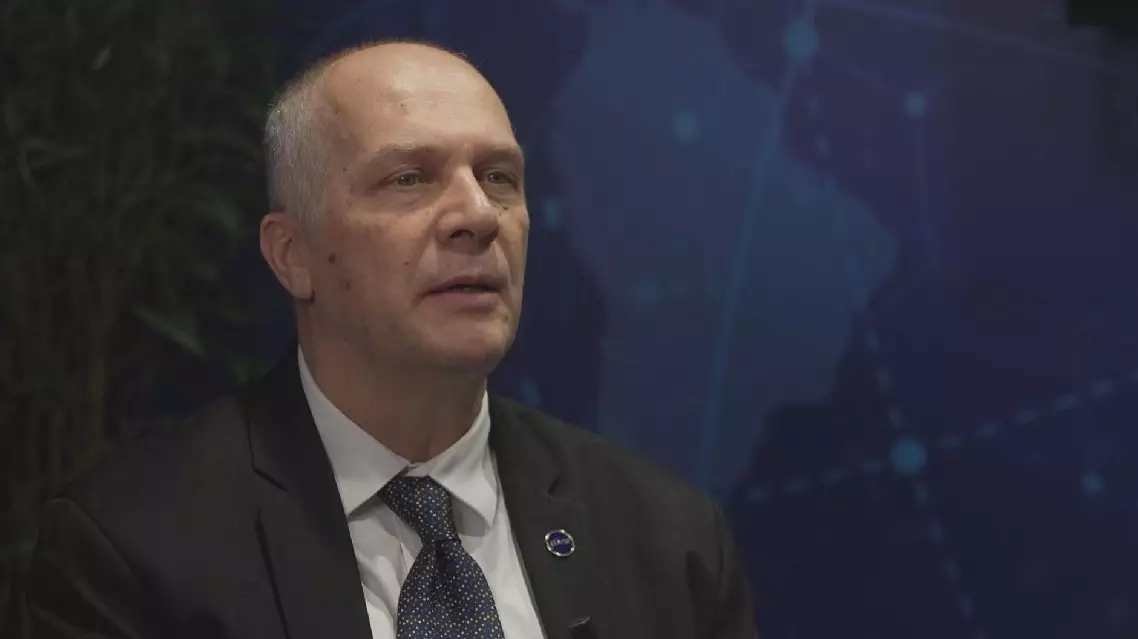
Brazilian space chief calls for enhanced collaboration among BRICS countries
Cities across China have seen increasing numbers of entry-exit trips made by foreign tourists since the beginning of this year, thanks to the implementation of visa-free entry and transit policies and various other preferential policies facilitating foreign tourists’ stay in China.
Border inspection agencies across the country recorded a total of 8.186 million entries made by foreign nationals during the third quarter of this year, representing a year-on-year increase of 48.8 percent, of which 4.885 million trips enjoyed the visa-free policy, up 78.6 percent from the same period of last year, according to the National Immigration Administration (NIA) on Friday.
Since the beginning of this year, China has been making continuous efforts to expand the coverage of its visa-free policy, while introducing a series of policies and measures to facilitate foreign nationals' stay in China.
In addition, China has further extended its visa-free policy for foreign travelers, now allowing visitors from 54 countries to breeze into 37 entry ports nationwide under the 144-hour visa-free transit policy.
According to statistics from the Beijing General Station of Exit and Entry Frontier Inspection, in the first three quarters of this year, more than 1.7 million inbound and outbound trips were made by foreign nationals through ports in Beijing, an increase of 156.6 percent year on year.
"I had a lovely trip to China as been three days here arrived on Sunday. And the visa-free policy was really easy. The coming through immigration was really seamless and was a really good experience," said a New Zealand tourist.
"We enjoyed our trips. We visited the Great Wall. We also went to the downtown in China. We've seen a few places. We did enjoy the visa-free program," said a Polish tourist.
In the first three quarters, east China's Jiangsu Province also seen a climbing number of foreign visitors, registering 272,000 entry-exit trips made by foreign tourists through ports across the province, up by 128.56 percent year on year. Among them, 236,000 trips enjoyed the visa-free policy, a 15-fold increase over the same period of last year.
Southwest China's Mount Emei, one of the most beautiful mountains in China, has become popular among foreign tourists this year. As of Thursday, the scenic spot has received nearly 90,000 foreign tourists.
In order to facilitate foreign tourists' trips, local public security bureau has set up service stations at railway stations and core scenic spots.
"In the next phase, we will continue to optimize and improve policies and measures related to visa-free transit, expand the coverage, increase the linkage areas and optimize the layout of opening up, to further enhance the value and attractiveness of relevant policies. We will also work actively with relevant authorities to make it more convenient for foreign nationals to come to China," said Zhang Ning, a spokeswoman of the NIA.
The NIA has opened an immigration service hotline to provide one-stop resolutions for foreign visitors, while the State Administration of Market Regulation and the National Bureau of Statistics have selected eight cities to pilot the opening of credit supervision data to facilitate mobile payments by foreign nationals in China.
Beijing is the first city in the mainland to open access for using foreign bank cards to take subway. Shanghai has put into use the one-stop service centers for foreigners in terminal 2 of Hongqiao International Airport and terminals 1 and 2 of Pudong International Airport, providing guiding manuals, transportation card sales and foreign currency exchanges.
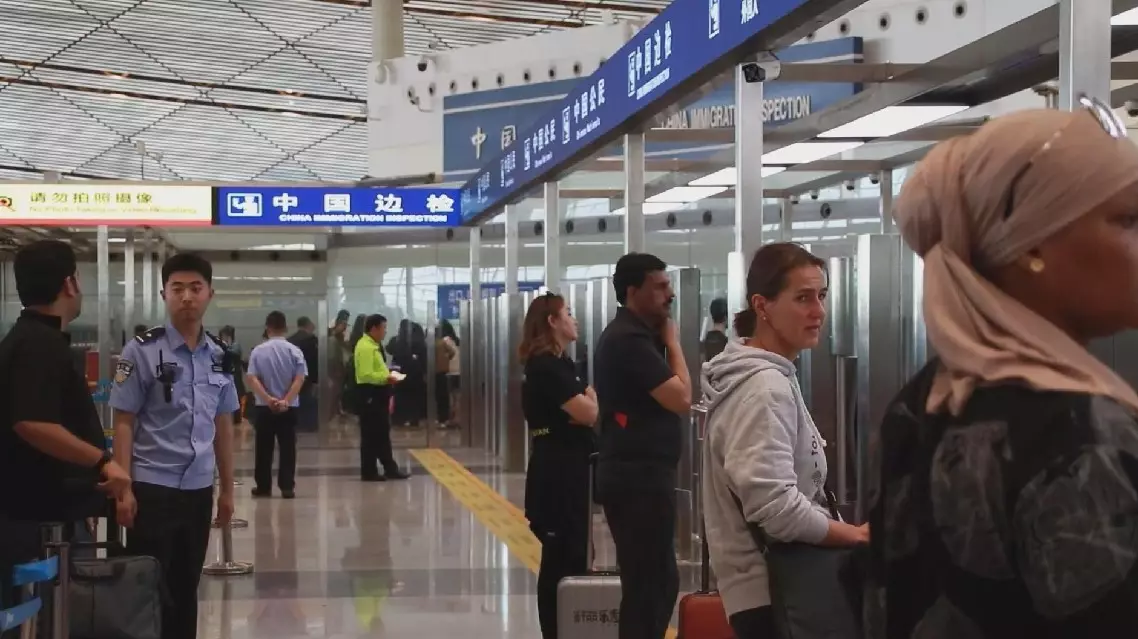
Chinese cities see surging numbers of entry-exit trips by foreign nationals





